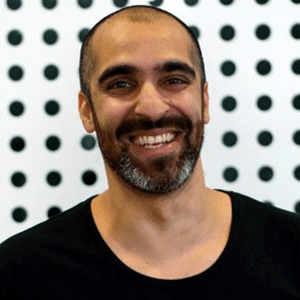

#54: A strong Australian economy : Opportunities and challenges for business
In this episode, Warren Hogan sits down with Stephanie to talk about the current economic environment that business leaders are now operating in and what it will take to succeed.
Warren Hogan is the Managing Director and Founder at EQ Economics and Economic Advisor at Judo Bank. Warren is also a columnist for Financial Review, contributor to Sky News and has experience working for NSW Treasury, Westpac, Credit Suisse, ANZ Bank and more.
Warren shares insights on rising interest rates, the issue of ‘people’ and exactly what leaders and owners of SME’s need to be doing right now.
‘The world has shifted a lot, particularly in the last 6 months. Our economy is robust, but will also bring many challenges over the next couple of years – It will be dynamic, exciting and frightening for business and one of the most interesting economic backdrops that we’ve had in this country for a generation or longer.’
Is your business in a defensive posture or an expanding posture? A must listen podcast for all business leaders!
In this episode you’ll hear:
• Challenges and opportunities in the current economic environment
• Upcoming issues that businesses should prepare for
• Insights on Australia’s interest rates
• The ‘people’ challenge and how to manage it
• What owners and leaders of SME’s need to be doing right now
Stephanie: Welcome to TEC live. Stephanie Christopher here, CEO of The Executive Connection. We connect leaders with a trusted network of people who help them succeed.
Leah: Stephanie, it’s been a while since you’ve had this guest on and with the last couple of years, like the pandemic and stuff, I’m looking forward to learning a lot in this episode.
Stephanie: I’m really looking forward to having a robust conversation with Warren Hogan, who is our absolute economics guru. He’s the managing director and founder of EQ Economics, which is a consultancy specialising in economic, market and industry analysis. So Warren’s an economic advisor to Judo Bank, which is an interesting specialist, SME focused lender and a regular as well in the Australian and international media. He’s a columnist for The Financial Review and a contributor to Sky News. So why are we talking to Warren? Because of his wealth of experience working for New South Wales Treasury, Westpac, Credit Suisse and Zed Bank, where he was the chief economist from 2009 and 2016. Warren is also a great friend of this podcast. So Warren Hogan, welcome to TEC Live.
Warren: Thanks for having me back, Stephanie.
Stephanie: Yeah, good to have you back. I mentioned before, I can’t believe how long ago it was, but we spoke after the last federal election last time when we were all ready to talk about the change of government and how to prepare your small business for the new world, and it didn’t happen. Something much bigger happened to us all after that election. So we won’t have a whole podcast on the election. Let’s say that we’re recording this before Easter in Australia. So what words of wisdom do you have to say about where we are right now?
Warren: Well, in that frame, there has been a lot that’s happened since the last election and it’s had profound implications for the business environment and the economy, obviously the pandemic. Really what we’re facing now at Easter in 2022 is an incredible recovery in the economy, incredible recovery in people’s confidence and willingness to get out there and spend, businesses to invest, and this is all I think, really come to light just in the last six months. It’s got its own challenges, as we’re seeing playing out this Easter in the airports of the Eastern seaboard of Australia, where labour shortages are causing long delays.
We’re hearing inflation, a lot about inflation, particularly what we’re seeing overseas, which is a global phenomenon related to the pandemic. So look, the world has shifted a lot, not just in the last three years, but in the last six months. I think while the economy is very robust and strong, and this is a great opportunity for many businesses, and obviously because they’re investing, they’re hiring, it also comes with many challenges, and I think the next couple of years are going to be an incredibly dynamic, exciting, frightening environment for businesses, for consumers. It really is going to be one of the most interesting economic backdrops that we’ve probably had in this country for a generation or longer.
Stephanie: Wow. So that’s really interesting, and I know you were saying to me before about the thing about the economy is it’s changing so quickly. So I think it’s two or three weeks ago that I heard you present, and you were saying all the things about why you were so optimistic about the economy. Here we are three weeks later where you’re saying it’s kind of pretty close to overheating. Tell us what that means.
Warren: Yeah. Well, I mean, they sort of go hand in hand. I’m optimistic in the sense that the economy is underpinned by strong demand and what we are now seeing and have been for much of this year is evidence that there’s probably too much demand and that’s best evidenced by the fact that we’re running out of staff, labour in the whole economy. Now, some of that is transitory, temporary, as we’re hearing many policy making economists call inflation and so forth, and that’s because COVID and restrictions and various things are still causing havoc. It is a reason why the airport is facing some of its strains and stresses because of isolation rules. So some of these things will ease up over the months ahead assuming that it all goes well on the health front, but actually it looks like fundamentally what’s happened is the significant efforts to support the economy through the pandemic have put so much money into the economy, so much stimulus, and it’s not just disappearing.
It stays in the economy. You can see record amounts of savings in the last few years, and this isn’t just Australia. This is overseas as well. So I think the issue is great. It’s a strong economy, great opportunity for those that are bold. I think it’s an aggressive environment and we can talk about business strategies with inflation and so forth, but the reality is that there’s still going to be great challenges for consumers, for businesses in particular. I think this is an extraordinarily difficult environment for businesses across the board, small, medium, and large, but of course, as always SMEs have less scale, less flexibility. So they’ve really got to be on their game. So I think really, we want to get to the bottom line of this, is it’s all about rising costs, rising inflation and how you survive that environment. That’s the number one issue for businesses on top of, of course, managing these labour shortage issues.
Stephanie: Labour shortages. So let’s just put some context around Sydney Airport and just explain what’s happening right now.
Warren: Well, there’s just queues out the door. They just don’t have enough staff to check people in. They don’t have enough security staff to get them through the security lines. They don’t have enough baggage handlers, there’s baggage in arriving. I am confident, hopeful that this is not an issue in the maintenance side. We do know that Qantas has had to cancel international flights for pilot shortages. So look, just essentially a very stressed airport. Sydney, I think is the worst, but I’d say Melbourne and Brisbane are not far behind. You can’t argue that it’s not a restaurant where there was suddenly a lot of walk-ups. These are bookings…
Stephanie: They’re bookings, and as you say, it speaks to that demand in the economy overall. It’s that demand for air travel, holiday.
Warren: Well it’s demand for everything. I mean there’s one, sort of as an aside, consumer sentiment’s quite soft, but consumer’s spending strong. Now this is cost of living. There’s a few things going on there. This is happening in the U.S. as well. People are spending. They have money, will spend. They might be worried. They might be concerned about cost of living, but definitely there’s a lot of spending going on. Melbourne Grand Prix last weekend, record sporting event in Australia ever. Over 400,000 people attended.
Stephanie: Is that right?
Warren: Yeah. So Australians, it’s not just a demand for staff, for going out to restaurants, for going on holidays, it’s a demand to engage. I think this has got a strong economic dimension, but of course this really reflects the society that bit its tongue, did the right thing for two years, but it’s not the way our society works.
Stephanie: No. Sick of it.
Warren: Well, the reality is that we really need to hope there’s no more major health issues and viruses because we won’t be able to do it again. There will not be that degree of compliance.
Stephanie: No.
Warren: This country was one of the best in the world. In fact, I think some state governments took advantage of that and have cost themselves dearly, but it just shows you how much people want to get on with life and what a great free society we have. Free economy.
Stephanie: For a low rule following nation, it was amazing what the last two years were like. So what are the implications then for business with this demand, inflation, cost of living?
Warren: So yeah, obviously the absolute crisis point that’s hitting many businesses, many industries is finding staff and how to deal with that, and there’s always a capacity to run the staff at a harder level for a short period of time. We can all work hard for a few weeks, even a month, but I think that that’s got a shelf life and then you start to see the consequences of that. I think you’re seeing that in the health system now, where part of the problems in the health system, in some states in particular is nurses leaving after being overworked for the last few years. That could be an issue more broadly. So managing your staff, getting through this period where you may be understaffed and most importantly, finding staff and training staff and all that. So there’s that whole staff issue, which has been actually around for almost a year. It’s just getting more and more acute.
It won’t go away. Really the next sort of issue for business in Australia is how to manage their cost base because the staff issue quickly translates into a wage issue.
Stephanie: Absolutely.
Warren: That’s only just now starting to really happen. Wages don’t respond quickly to the environment, particularly after 30 years where wage growth has been pretty stable, and that has implications for both employers and employees in the way they think about asking for more money or paying more money. So that’s only just really starting to come through, but there’s already an existing, significant shock to the cost base of many businesses across Australia. Transport, fuel, materials. There’s a big sort of inflation impulse coming through outside of the labour market. Of course some businesses are more exposed to that than others, but ultimately, things like the cost of fuel, the cost of logistics, it ends up impacting just about all businesses in one way, shape or form.
So that higher cost base is eating into profits, and again, businesses are probably better than they’ve ever been at managing short term P&L impacts, letting it flow through, and different industries have different dynamics, but eventually if it’s a permanent shift, which I think it’s increasingly looking like it is, you have to pass that on to your customers because in the end, the whole economy comes back to consumers, whether it’s in terms of they pay for it or their savings ends up in their bank account or whatever. The economy is run for people. I mean, that’s what an economy is. So I think this is the big issue for Australian business in the next 12 to 18 months is how to manage those cost pressures and how to get a pay raise for themselves and how to put their prices up.
Of course, you can sit and look back at the broader business environment for the last let’s call it 10 years, and the reality is business failure rates have been at historic lows. They’ve been in decline since the middle of the last decade, since about 2015, and of course in the pandemic insolvency procedures were suspended for a year, and then last year, although those insolvency procedures were put back in place, the ATO was pretty generous. I think the banks were pursuing a lot of forbearance. That environment’s now shifting, and the trigger now for understanding the survivability of a business is going to be, I believe, this process of whether they can pass those higher costs on. So it’s about testing your market and that could be that someone else in your industry does it better. You’re not as efficient. So you’re not able to sell coffee for $4.50 because someone across the road can sell it for $4.
Or it’s going to be that the consumer or other businesses don’t want your product anymore because it’s too expensive, and the demand just disappears. Now look, I don’t envisage that to be a broad based widespread outcome. I just think there’s going to be some businesses that aren’t efficient and some businesses that aren’t going to make it through, and that’s going to be part of actually solving the labour problem because when businesses fail, they release staff into the economy. So it’s actually quite good from a human perspective that we have a pick up in the business failure rate in a strong economy, because people can then go and get jobs.
Stephanie: Then get jobs very quickly.
Warren: So that’s this dynamic economy. So a great way to think about it from my point of view is that the turnover of labour and capital, the foundations of how economists think about an economy is going to pick up, or it is picking up right now. The great resignation, staff turnover and this capital turnover, and that capital turnover has been falling for seven or eight years. Insolvency rates have been falling, extracting capital out of businesses that haven’t got a future. That’s part of-
Stephanie: The cycle.
Warren: Yeah. You can’t sit there and argue that you want innovation and dynamicism and new technology and all these things that go on in a free and open economy in society and not be prepared to sort of let the old go. You want to have processes where that’s done as smoothly and with as least disruption to particularly individuals as possible. So again, it’s good that it’s happening in a strong-
Stephanie: In a strong economy.
Warren: Yeah.
Stephanie: So you said something right at the beginning, Warren, about the next two years could be some of the most exciting and dynamic for businesses in generations.
Warren: Yeah. Well we’ve had a very stable economy in many respects. There’s been lots of shocks. We hear the politicians constantly talking about how well they’ve navigated through the Asia crisis, the tech wreck, the GFC. There’s no doubt that these were significant shocks, but these were shocks that were coming in at the economy in very specific ways, whether it was a trade shock, the Asia shock or whether it was a financial shock, the GFC. The pandemic, of course. What I’m talking about is the way the economy works and its own dynamicism. I think the environment we’re entering into now with the big pickup in turnover of labour and capital, strong demand, probably demand exceeding supply in the broadest economic terms we probably haven’t seen since the 1980s.
We certainly haven’t seen the sort of inflation that’s running through the system since the 1980s in this country and in the U.S., since the 1970s bearing in mind that the U.S. got rid of their inflation from the 1970s in the early 80s. It took us another 10 years to do that. We still had a fair bit of inflation in the 1980s. So it’s really unique for most business people. You have to be quite old to have lived through this sort of-
Stephanie: So as a child in the 80s, I must have been in kindergarten then. Well, I perhaps wasn’t as attuned to the economy then.
Warren: No, there’s very few people who had leadership positions back then.
Stephanie: Well, I was a speech pathologist. Didn’t matter at all. That was the least of anyone’s worries. How did businesses navigate it then? Because, well, I remember in the 80s, what the interest rates were on a home.
Warren: Yeah. Well, I mean, hearing this actually in the discourse in Australia right now, the RBA can only put interest rates up like 1% or one and a half because people are going to fold on their mortgages. In the late 1980s, people took second and third jobs and they ate rice to pay their mortgage.
Stephanie: Luxury.
Warren: Yeah. I mean, look, this could be actually quite profound and basic for society.
Stephanie: Because it was the interest rate at one point was-
Warren: The mortgage interest rate got up to around 7%, 8%, 9%.
Stephanie: That’s what I thought, and credit cards were 22 or something.
Warren: Credit cards are still 22.
Stephanie: Right.
Warren: There’s a credit issue there apparently, but no, mortgage interest rates got up into the higher teens. Right now, the mortgage rate is between two and two and a half for most borrowers, and there’s a bunch of economists in big banks who are obviously very exposed to this market saying that they can only go up by one and a half percent. I think this is another feature of the environment, which we can do a podcast on in six months’ time because I don’t think we need to worry about it right now, but interest rates are probably going to go up by a lot more than any of these bank economists.
Stephanie: Well, I heard someone quote 6% the other day, as shock horror, and I thought, my partner in the 80s worked at a bank, so that’s what our interest rate was, 6%, which was just like a dream.
Warren: Yeah. That’s, I think something that the economy is going to need to potentially deal with in 23 and into 24, as much higher interest rates. At the moment, the challenges are different and interest rates will go up. I think they should be going up right now because a big part of the reason we’re in this situation, and essentially we heard John Howard once again talk about it with Jobkeeper and the way the government responded to the pandemic was you’ve got to act, which I totally agree with. I lobbied the government to act, and you have to err on the side of doing too much, rather than too little. They certainly did that. What we now know, and the evidence has been building for well over a year, is that they did too much.
Now the thing is no one can blame anyone for that. We had never seen this before.
Stephanie: No.
Warren: The problems in the previous recessions, particularly the early 90s in this country, was doing too little. So no one’s going to hold anyone to account for making that error. What I’m worried about is policymakers and certain types of economists who support this are trying to say it’s not too much stimulus. As they say in politics, it’s not the crime, it’s the cover up. That’s what the Reserve Bank of Australia is doing, and that’s why they’ve been dragging their feet on sort of recognising the new environment, and I think this is where the policy area is being made right now is not acting swiftly to withdraw some of the stimulus, because the reality is that last budget from Josh Friedenberg still was stimulatory with those cost-of-living handouts.
I’m not going to take the argument that the budget deficit is lower this year than it was last year, and therefore it’s tightening of fiscal policy. It just doesn’t stand up. Of course our interest rate is still at 0.1%. The RBA of only just in the last two weeks admitted, oh well maybe we should start raising rates. I mean they have been … the deputy governor of the Reserve Bank resigned after a 30 year career, one of the finest central bankers in the world, and I’ve known this guy for a long time. He resigned out of the blue four weeks ago. So there’s something wrong in Martin Place. That’ll be reviewed by this side of politics after the election, and we we’ll probably see some changes up there.
Stephanie: Wow, and you heard it here first.
Warren: No, I’m not sure you heard it here first. It was on the front pages of the paper.
Stephanie: Yeah. I’m busy.
Warren: I’m not saying why he resigned. I’m just saying it’s extraordinarily-
Stephanie: No, but even the implication.
Warren: Well, he’s going off to help Twiggy with climate change and hydrogen, but he’s very bright guy, but the reality here is that we now have an environment where it’s very dynamic, lots of demand. It’s creating as many problems as the opposite problem of not enough demand, but they are different problems. I think businesses that are in the defensive posture need to be very realistic about their future and businesses that are in expanding posture, new industry, new businesses, they want to go for it because this is a time to secure cheap funding. This is a time to go and invest, and that’s actually what’s happening out there, and that’s why it’s such an exciting environment, but there will be stresses and strains that emerge.
Stephanie: I love what you’ve said then about being defensive versus opportunistic and really being, this is a time for change and growth and innovation.
Warren: Well if you think about in terms of small business, one of the demographic shifts happening right now, a foundational one is the retirement of the baby boomers. I’m sure there’s heaps of baby boomers who have small businesses, and those small businesses are probably going to be wrapped up rather than sold. So, they might not be registered as insolvencies or business failures, but there is this process of dynamic change in the economy, and because turnover in capital, particularly because our insolvency rates have been quite low for a while, it’s almost like we’ve lost a bit of that industrial change and I’ve got a feeling it’s accelerating now. That’s part of this sort of exciting environment. So businesses that have been struggling for a while and are now struggling even in this environment really need to have a long hard think about their future.
Stephanie: What the future is.
Warren: Yeah. I mean, this is where people sort of criticise America and their form of capitalism and it is quite brutal, and I think there’s a lot of things that are not great about America, particularly the social welfare system, but the fact is that entrepreneurs are forgiven and business failure isn’t frowned upon. We all talk about the role of innovation, technology, dynamicism. You can’t have that without also accepting that that displaces old businesses and that’s also at the heart of what creates wealth.
Stephanie: Well, it’s interesting when you talk about that generation, because I was thinking before about the 80s actually is a long time ago, and a lot of people leading small businesses now will never have been through that time. They’ve been through either strong economic growth, positive times, everything’s fine, steady as she goes, small increases in salaries. So this is actually something that people have to get their head around very quickly, don’t they?
Warren: Yeah, and there’s a number of elements to it. There’s the element of we’ve essentially had unemployment in this country where-
Stephanie: What’s the rate, Warren, do you know?
Warren: 4%. 4.048976245782. No, I’m just joking. 4%, but it’s normally a little bit above what the economists would call full employment. So businesses have rarely had such difficulties finding labour. I mean, there’s always a problem finding certain skills in certain geographies and certain industries. That’s ubiquitous, but rarely is everyone struggling with it. So that’s one issue. The other issue is pricing. So we haven’t seen inflation and just is a mid-level worker comfortable standing up and asking their boss for a 10% pay raise? Well, they haven’t probably done it ever.
Stephanie: No.
Warren: Is a company that’s really trying to build a relationship with their customer base and solidify business relationships, happy to put their prices up by 20%? So there’s a need to be sort of courageous. There’s a need to be honest and have discussions. There’s a whole range of different things that are happening now that probably only just sort of happened occasionally in the last 30 years. It all seems to be happening now. Lots of difficult conversation, difficult decisions, need for some bold risk taking, this sort of thing. I think the thing about this environment is doing nothing’s not an option and doing nothing is actually very dangerous and doing nothing’s a very common human response to the world around them.
Stephanie: Absolutely. Okay. So, where we are then, dynamic opportunity, risk, challenge, little bit scary. People, it just keeps coming up in this studio, people being such a challenge and how to manage that. What other things that you would say to the owner or CEO of an SME, the three or five things that they need to do right now?
Warren: I think is to think long and hard about what is happening to their business in the last six to 12 months, that is different to what is normal and to really sort of almost be forensic about what are the different moving parts in their business that are changing. Then of course the most important things in all of this, whether you’re investing in financial markets or you’re running a business, is what are your working assumptions? Are they the ones you’ve always had, or are they some new ones, but actually being brutally honest and questioning those literally every month? There’s a fine line, I suppose, between showing conviction about what you want to do and falling in love with your view and being wrong.
So you’ve got to be sort of honest enough with yourself to keep questioning it. It is such a dynamic environment. Then I think the other thing is to really, one thing, I’ve been a lot more involved in sort of SME and mid-market companies in the last few years, but having worked in a large bank or large banks is really thinking about if you haven’t done it, strategic planning is taking a snapshot of the business, the market, the industry for the next three to five years, getting some external help potentially, getting your top team together, whatever you’re doing. Even if it’s just you in your small business, spending some time, maybe you have a bottle of scotch on a Sunday afternoon and just start making notes about what-
Stephanie: Can’t you just picture it? Yeah.
Warren: Whatever you got to do, it’s all about putting this operating environment into context and trying to maximise the amount of opportunities and good decisions and bold decisions you can have and minimise the amount of bad decisions you can take, which could also mean not making decisions. I think that’s how I’d think about it. It’s tough. A lot of SMEs are very operational, and it is reality. They’re doing a job, they’ve got a lifestyle, they love it, whatever it is. As a leader, as an owner, as a CEO, what have you, I think it’s an important time to take stock. I’ve noticed actually in the last 18 months through my work with TEC and Judo, that there is a lot of that happening more in the mid-market of course, but they are seriously sort of taking that advice about putting the business in a strategic context.
Stephanie: Wonderful. So much content in there. We didn’t even talk about the election. I don’t even care.
Warren: Oh, I’m happy to-
Stephanie: Final note. What would you say?
Warren: Look, it’s a very disappointing arrangement, and both the major parties are to blame. It’s a policy free zone. The policies are all bits and pieces. There’s nothing profound. There’s nothing visionary. You could argue the government has a vision of sort of trying to run a free and open and vibrant economy and some of the key planks, but the reality is they’re not looking to make any tough decisions. Then I think this is the big issue for me in terms of how our economy’s functioning and how our government’s functioning, is we’re increasingly losing the capacity to make sacrifice now for a better future. My sense is that there are necessary sacrifices that every generation has to make or tough decisions that have to be made by every government, and if you don’t make them, it’ll eventually come back to bite you on the butt somehow.
I just get this sense that’s happening and underlying all of that is the rise of minors and independence. It’s been happening for 40 years, but we now have a position where in the House of Reps, the primary vote potentially going to non two major parties is going to be at a record high, and of course that means that the chance of a majority government is going down. We may never have a majority government again in this country or not until we have a genuine crisis when people rally behind a powerful much needed sensible government.
Of course, minority government just means it’s harder and harder to-
Stephanie: It’s a headache for everyone.
Warren: … to make the big, tough policy choices. One thing that economics shows you in reference to public policy is that there’s always winners and losers, and you have to make the case and you have to communicate. I just don’t see a lot of that happening at the moment. It’s real personality stuff. I think the country’s going to be worse off for it. I don’t know who’s going to win. It’s going to be close, and as John Howard says, the Australian people don’t get it wrong, which I think is just a sort of a funny spin on, well, we’re going to get whatever result we get.
Stephanie: People will vote. Warren, so articulate, informative, provocative, and never in love with your own point of view. It’s so wonderful to talk to you. Thank you so much for joining us.
Warren: Thank you for having me on, Steph.
Stephanie: Discover more about TEC at tec.com.au.



